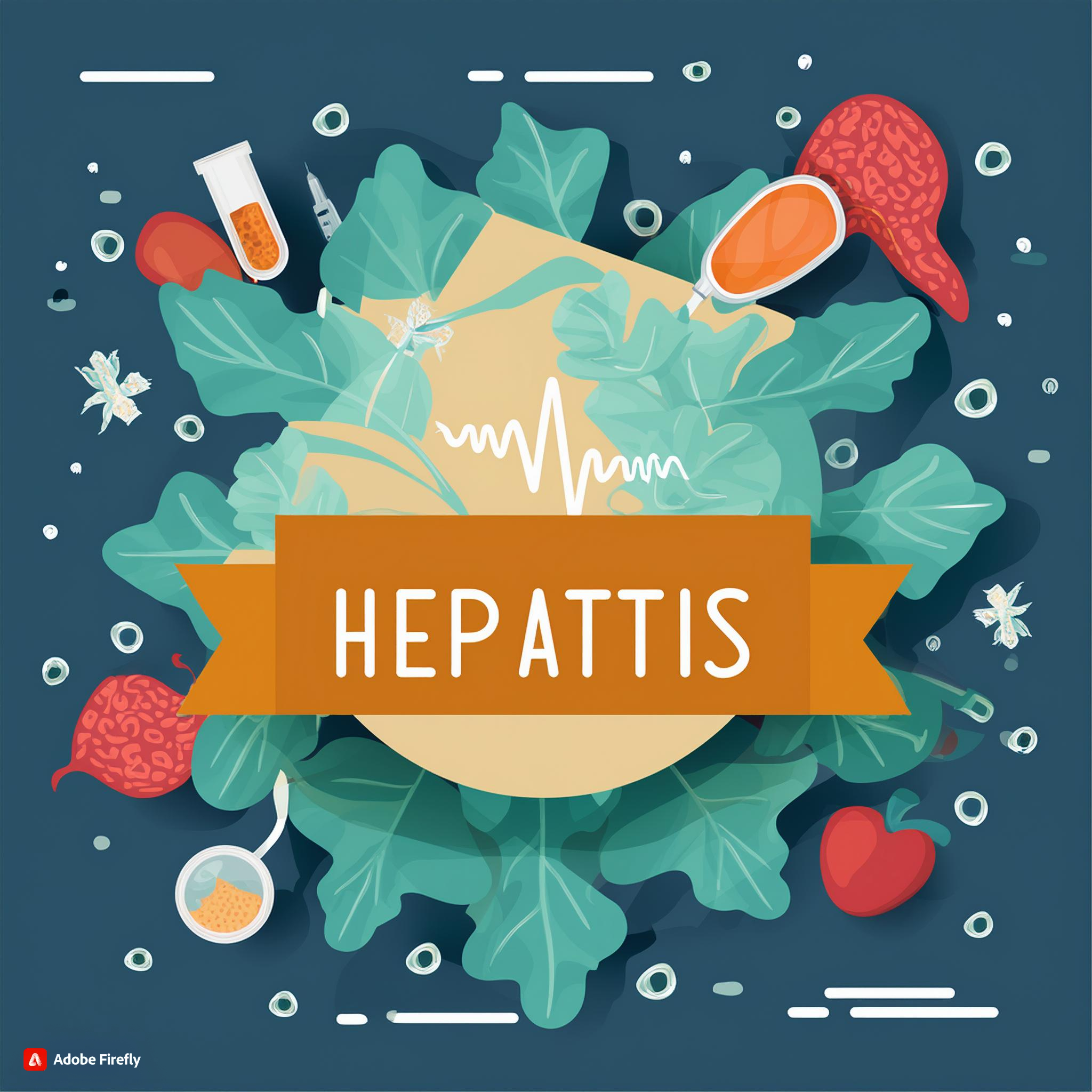What Causes Hepatitis?
What Causes Hepatitis?

What Causes Hepatitis?
Hepatitis meaning liver inflammation is a condition that affects millions of people worldwide. It can be caused by various infectious viruses and non-infectious agents leading to various health problems, per the World Health Organization (WHO). It can range from a mild illness lasting a few weeks to a severe, lifelong condition that can lead to liver failure, liver cancer, or death.
Understanding the causes of hepatitis is important for prevention, early detection, and effective treatment. This article explores the various causes of hepatitis, from viral infections to lifestyle factors, and how it impacts the liver.
Viral Causes of Hepatitis
The most common cause of hepatitis is viral infection. Hepatitis viruses are classified into five main types: A, B, C, D, and E, each with distinct modes of transmission and impacts on the liver.
Hepatitis A
Hepatitis A virus (HAV) is typically transmitted through ingesting contaminated food or water. Poor sanitation and hygiene practices, such as inadequate handwashing after using the restroom or handling food, enhance the spread of HAV.
Generally, the hepatitis A virus causes an acute, short-term infection. Symptoms include fatigue, nausea, abdominal pain, loss of appetite, and jaundice (yellowing of the skin and eyes). While uncomfortable, hepatitis A rarely leads to chronic liver disease, and most people recover fully within a few weeks to months.
Hepatitis B
Hepatitis B virus (HBV) spreads through contact with infectious body fluids, such as blood, semen, and vaginal fluids. This can occur through sexual contact, sharing needles, or from mother to baby during childbirth.
It can cause both acute and chronic hepatitis. Chronic hepatitis B can lead to serious complications, including cirrhosis (scarring of the liver), liver failure, and liver cancer. Vaccination is highly effective in preventing HBV infection.
Hepatitis C
Hepatitis C virus (HCV) is primarily transmitted through blood-to-blood contact. Common routes include sharing needles or other equipment to inject drugs, needlestick injuries in healthcare settings, and through sexual contact or from mother to baby during childbirth.
It often leads to chronic infection, with many people remaining asymptomatic for years or even decades. Over time, chronic hepatitis C can cause liver damage, cirrhosis, and liver cancer. Unlike hepatitis B, there is no vaccine for hepatitis C, but antiviral treatments can cure the infection in most cases.
Hepatitis D
Hepatitis D virus (HDV) requires the presence of hepatitis B virus to replicate. It is transmitted through contact with infected blood, similar to HBV. It can worsen the severity of hepatitis B, leading to a more rapid progression of liver disease, including cirrhosis and liver cancer. Prevention of hepatitis D is primarily through vaccination against hepatitis B.
Hepatitis E
Hepatitis E virus (HEV) is primarily transmitted through ingestion of contaminated water. It is most common in regions with poor sanitation. It typically causes acute hepatitis, with symptoms similar to hepatitis A. While most people recover fully, HEV can be severe in pregnant women and individuals with weakened immune systems, potentially leading to liver failure.
Non-Viral Causes of Hepatitis
While viral infections are the most known cause of hepatitis, other factors can also lead to liver inflammation.
Alcohol-Induced Hepatitis
Excessive alcohol consumption can damage liver cells, leading to inflammation and hepatitis. This condition is known as alcoholic hepatitis. This can range from mild inflammation to severe liver damage. Long-term heavy drinking can lead to alcoholic cirrhosis, a serious condition where liver tissue is permanently scarred.
Autoimmune Hepatitis
Autoimmune hepatitis occurs when the body's immune system mistakenly attacks healthy liver cells, causing inflammation. Without treatment, autoimmune hepatitis can lead to cirrhosis and liver failure. The exact cause of this autoimmune response is unknown, but it is believed to involve genetic and environmental factors.
Drug-Induced Hepatitis
Certain medications and toxic substances can cause liver inflammation. Common culprits include acetaminophen (Tylenol) taken in excessive amounts, some antibiotics, and other prescription drugs. The severity of drug-induced hepatitis can vary. In some cases, stopping the medication can reverse the liver damage, but severe cases may lead to liver failure.
11 Warning Signs of Hepatitis
Identifying the early signs of hepatitis can lead to prompt diagnosis and treatment, potentially preventing severe liver damage. The symptoms of hepatitis can vary depending on the cause and stage of the disease but generally include:
- Fatigue: One of the most common symptoms, fatigue can range from mild to severe and interfere with daily activities.
- Flu-like Symptoms: May include fever, muscle or joint aches, and headaches.
- Abdominal Pain: Discomfort or pain, especially in the upper right quadrant of the abdomen where the liver is located, can indicate liver inflammation.
- Nausea and Vomiting: Persistent nausea and vomiting are common in many types of hepatitis.
- Loss of Appetite: A significant decrease in appetite can accompany other gastrointestinal symptoms.
- Dark Urine: Urine that is darker than usual can be a sign of liver dysfunction.
- Pale Stools: Light-colored stools may indicate problems with bile production or excretion.
- Jaundice: Yellowing of the skin and eyes is a hallmark sign of liver problems and occurs when bilirubin builds up in the body.
- Itchy Skin: Generalized itching can occur due to the buildup of bile salts under the skin.
- Weight Loss: Unintentional weight loss can result from chronic liver disease.
- Swelling in the Abdomen and Legs: Fluid retention, causing swelling (oedema) in the legs and abdomen (ascites), can occur in advanced liver disease.
